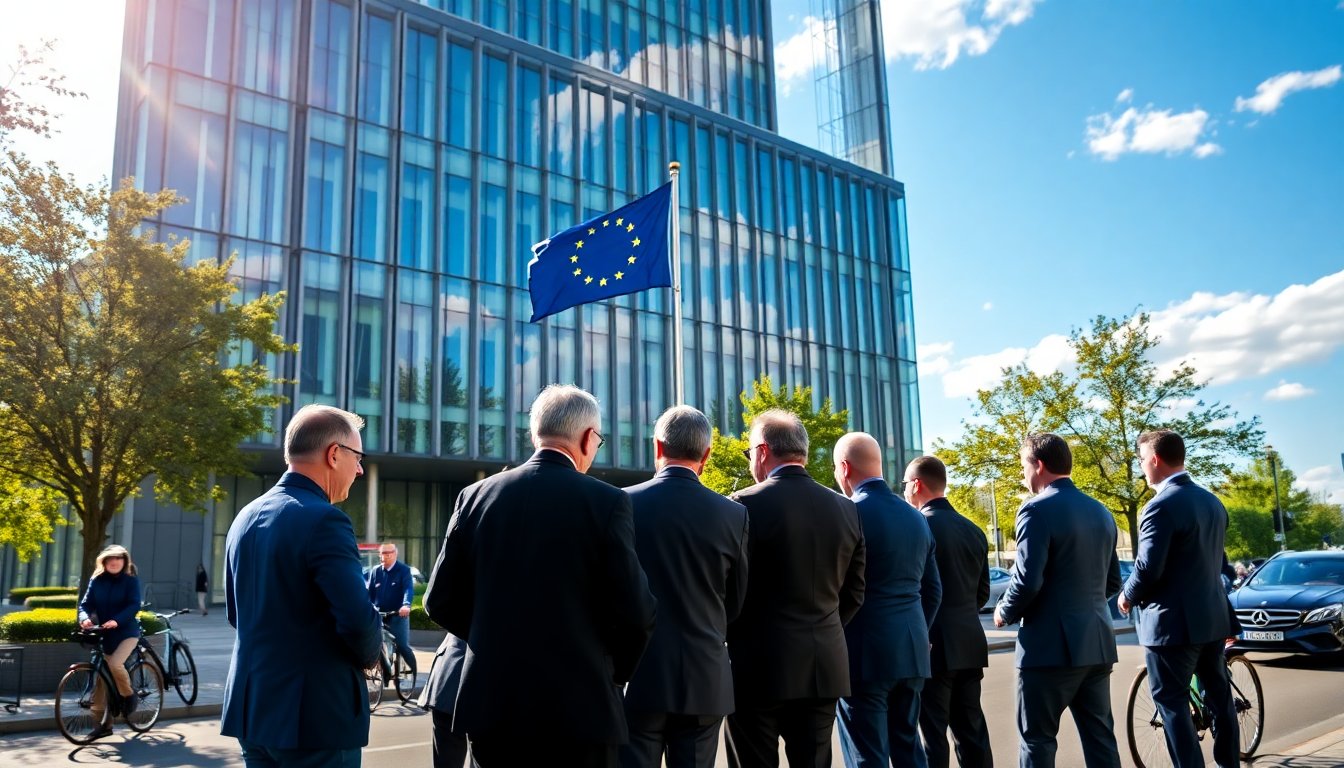Table of Contents
The European Commission has firmly stated that it will not consider changes to its proposed budget for the next seven years. This declaration followed comments by Italian regions commissioner Raffaele Fitto, who suggested exploring improvements to regional funding during a Committee of Regions meeting.
This incident revealed a rare disagreement within the Commission’s high ranks, particularly in the Berlaymont building, where spokespersons report directly to President Ursula von der Leyen. They quickly countered Fitto’s remarks, asserting that the Commission is unable to entertain individual budget elements or the views of co-legislators.
Internal conflicts regarding budget proposals
The Commission’s statement came shortly after Fitto proposed enhancements to certain budget provisions. He advocated for empowering regions to manage EU public funding, rather than leaving this responsibility solely with national governments. Although his comments were measured, they underscored ongoing tensions surrounding this contentious issue in Brussels.
Political repercussions and regional funding
The budget proposal was initially presented by the Commission in July and requires unanimous approval from the EU’s 27 governments and the European Parliament. As negotiations unfold, von der Leyen’s European People’s Party (EPP) has threatened to reject a controversial proposal that merges agricultural subsidies with funds for Europe’s poorer regions, thereby consolidating control under national governments.
Moreover, the left-leaning Socialists and Democrats (S&D) have expressed their dissatisfaction with this aspect of the proposal. They stated in a letter to von der Leyen that they cannot support it, as reported by POLITICO. To mitigate potential parliamentary pushback, Fitto and his colleagues responsible for agriculture and the budget are actively engaging with influential EPP lawmakers.
Fitto’s reservations and recent developments
For months, insiders have indicated that Fitto harbors significant concerns about the Commission’s strategy to enhance national governments’ control over regional funding. In July, a compromise was reached where von der Leyen committed to allocating €218 billion over seven years for less affluent areas, but no similar commitments were made for wealthier regions.
Fitto had previously suggested that discussions within the Council and Parliament could lead to favorable changes in the Commission’s budget proposal. However, the EPP has cautioned that failure to provide concessions for farmers and local officials could lead to an inevitable rejection of the proposal.
Concerns over asset management and political stability
Belgium’s Prime Minister Bart De Wever has raised alarms about the Commission’s plan to use frozen Russian assets, likening it to confiscation. As the Commission’s president prepares for possible no-confidence votes, divisions within the EPP are increasingly apparent, especially concerning two of von der Leyen’s key proposals.
Growing pressure from conservative and socialist legislators is compelling the Commission to withdraw a significant segment of its upcoming €1.8 trillion budget proposal. This situation highlights the complex dynamics of the EU’s budgeting process and the intricate balance of power among member states.
As negotiations progress, the focus on regional funding remains a crucial issue for numerous stakeholders. The push for greater regional autonomy in managing EU funds reflects the ongoing struggle between national and local governance within the European Union. The outcomes of these discussions will have lasting implications for the future of EU funding and regional development.


